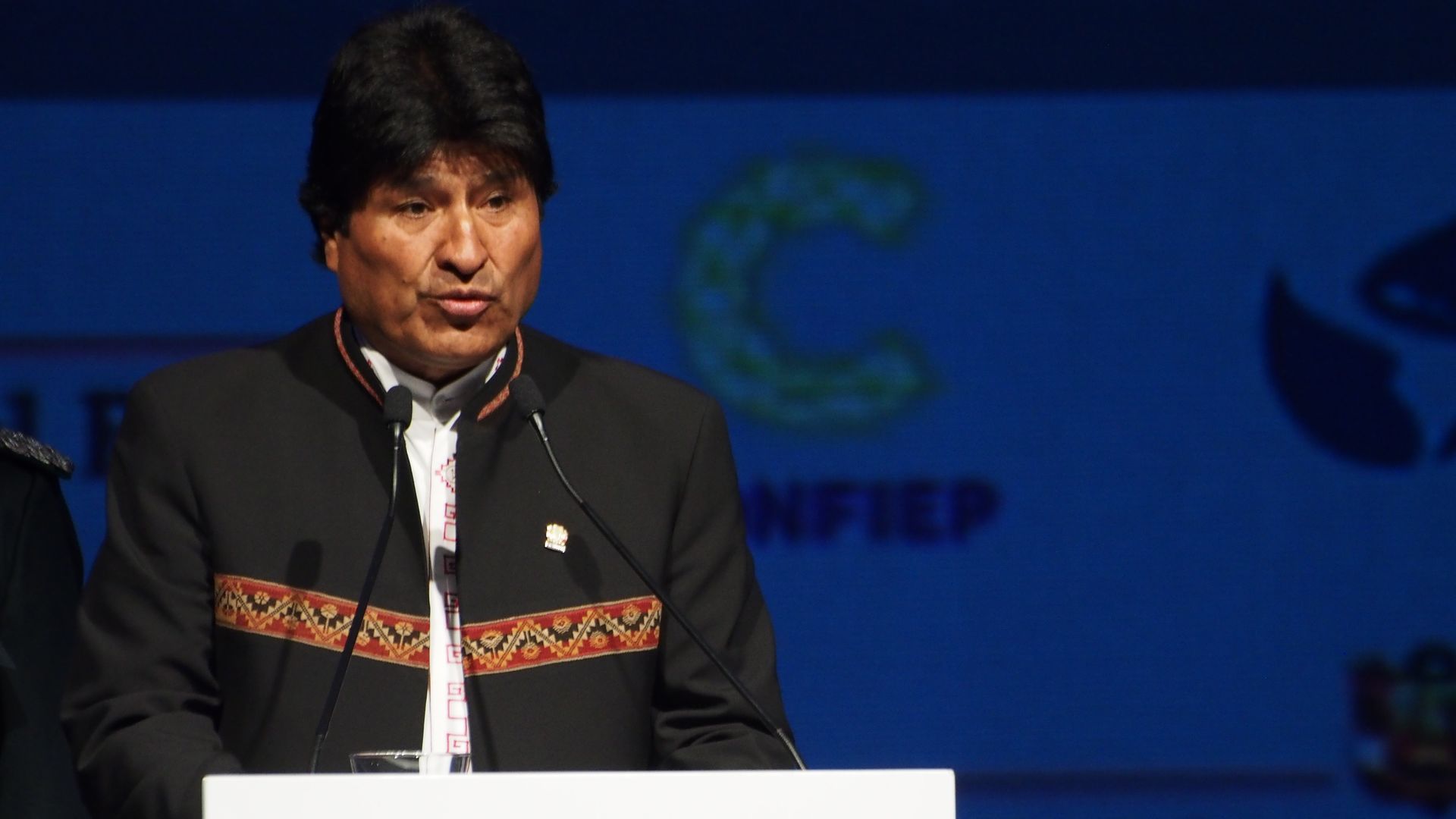Bolivia's post-election turmoil reflects fall from grace for Morales
Add Axios as your preferred source to
see more of our stories on Google.

Evo Morales. Photo: Fotoholica Press/LightRocket via Getty Images
Bolivia is poised between electoral uncertainty and political turmoil amid growing concerns that election day fraud may deny opposition candidate Carlos Mesa the chance to face incumbent president Evo Morales in a December 15 runoff.
The big picture: The Supreme Court's controversial decision to let Morales run for another term set a disillusioned backdrop for Sunday's vote, following a 2016 citizen's referendum that had disapproved of the rule change. Polling suggests a runoff could boost Mesa's chances, making Bolivian voters who already harbor doubts about the transparency of the electoral system even less likely to accept a first-round Morales victory.
Where it stands: In a reversal from preliminary results announced on election night, with nearly 97% reporting, the electoral tribunal reported that Morales won 46.49% of the vote and Mesa won 37.01%.
- Receiving over 40% of the vote, while also leading the closest opponent by more than a 10% margin, would allow Morales to avoid a runoff.
- Mesa has rejected the results and called for Bolivians to take to the streets in protest. The Organization of American States and the European Union have called for an audit and the government has said it endorses a recount.
- Isolated incidents of violence have broken out and demonstrations by supporters of both sides look set to continue, raising the risk of clashes.
Between the lines: Morales’s star was already fading, in the wake of corruption scandals, leadership fatigue and economic anxiety.
- From 2006 to 2013, when mineral-rich Bolivia benefitted from the global commodities boom, Morales commanded 60% majorities at the polls and was seen as a regional icon of both indigenous political identity and responsible leftwing nationalism, singularly capable of balancing social transformation among the poor with growth for the business sector.
- With those free-spending days in past, Bolivia still grows 3%–4% a year, faster than most of its neighbors. But without any major natural gas discoveries of late, Morales faces tough economic decisions and has fewer options to prop up the public spending that benefits his rural base.
What to watch: Morales has pledged to respect the result, while accusing the opposition of mounting a coup. If he prevails, he could still end up with a smaller majority in the legislature and may feel pressed to tighten his grip on power in order to enact his agenda.
Michael McCarthy is a research fellow at American University’s CLALS, an adjunct professor at George Washington University's Elliott School for International Affairs, and the founder and CEO of Caracas Wire.
